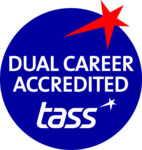To help you to understand more about apprenticeships we have compiled some FAQs to answer some of the questions that we commonly get asked.
Every apprenticeship will have a Standard, which outlines what you will learn and how your skills and knowledge will be assessed. The Standard is a short document (two or three pages) that has been created by different employers and industry experts. It sets out the Knowledge, Skills and Behaviours that they have agreed you will need to demonstrate to be assessed as ‘competent’ to perform that role at the appropriate level. It will also set out the qualifications that you will achieve as part of your apprenticeship and will explain how the assessment process will work. As well as the formal off-the-job learning, it is important to remember that you will also be gaining new skills every day as an apprentice, learning from the people that you work with who will help you to understand your role and the industry that you work in. You are constantly learning through an apprenticeship and will be applying your new knowledge and skills immediately in the job.
All apprentices go through a process called End Point Assessment (EPA), which is taken at the end of the apprenticeship. It is different for each apprenticeship, but could include a presentation, an interview, a practical observation, an online assessment or a different method. The EPA will test both your academic learning and occupational competence, which essentially means they will be looking for you to provide evidence and examples that demonstrate that you know how to perform your job.
It usually takes between 1 and 4 years to complete an apprenticeship, depending on which level you do. As a minimum, an apprenticeship must last for 12 months. Some apprenticeships, especially those at higher or degree level can last for between four to six years. This is because apprentices are balancing studying and working full-time at the same time, so it can take a bit longer to complete than the traditional route.
Each apprenticeship vacancy will specify the entry requirements and skills or qualities the employer is looking for. Entry requirements can vary between different employers. Some employers might ask for GCSEs, others will ask for A Levels and some will ask for no qualifications at all. As well as entry requirements, employers will be looking for how you will fit in with the organisation and for your passion and interest in working in that job role. It is important to pay close attention to each employer’s advice and guidance on applying for them, so that you can really stand out in the application process and ensure you meet their requirements.
Many people think that apprentices are low-paid, and this can sometimes be true, depending on the employer. Legally, an employer must pay an apprentice the National Minimum Wage for apprentices, which is currently £5.28 per hour (correct as of 3 January 2024). This is lower than the normal National Minimum Wage, but it recognises that some people will be going into their first job with no experience at all.
In the majority of cases apprentices move to a full-time employee status at the end of their apprenticeship, especially if they have performed well and achieved their qualification. If for any reason this does not happen we will work with you to find your next steps.
If you have more questions, we are here to help - just email apprenticeships@moulton.ac.uk or register your interest by completing this form.









